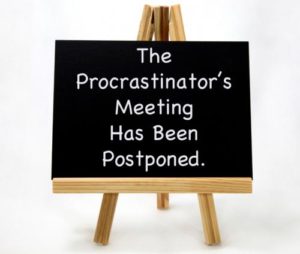Plan Your Tomorrow — Today
How often do you start your day with little direction around what to do? Maybe you’ve got a general idea of the day’s game plan, but if you haven’t taken the time to write it down in advance, odds are, you’ll be less likely to achieve your goals. Disciplined Leaders make daily planning a habit because they know this keystone habit can trigger a multitude of benefits. For starters, planning ahead for tomorrow reduces stress—it’s a proactive approach for controlling your schedule versus allowing it to control you. It also gives you a chance to build daily structure. You can prioritize your activities to align with and support your Vital Factors, or those key measures of your business’s health. Finally, just writing down the plan matters. Research shows that when you get it down in black and white, the odds of completing those to-dos goes up. So follow the example of Disciplined Leaders and carve out time at each day’s end to identify what you really need to accomplish tomorrow.
Click here to download our free time management checklist.
Here’s how to make planning for tomorrow a success—today:
Schedule your planning. Block out 10 minutes every afternoon to do this exercise. Particularly if you think you’ll struggle with remembering to do it, put it down in your calendar and set a reminder to do this at 4:50 p.m. every day. Another option would be to do it right before you turn in for the night. Keep sticky notes and a pen right next to your bed as a visual reminder to make your list before you turn off the light. What I find is that when I do this, it’s easier for me to relax and fall asleep. Next morning, when I wake up, I can immediately see on that sticky note exactly what the day’s priorities are. The key is to remember to grab that sticky note and take it with you before you head off for the day. Or, transfer it to your notes on your phone.Focus on what’s vital. Don’t create a long laundry list of items. Focus on a shorter hit list—say five to seven items. Of those, identify the top three that will deliver the greatest impact. If everything seems equally important, single out what most closely aligns with your vital goals, circling the ones that are the most time-sensitive. These should be your top three priorities for the day, or where your focus should be. Another tip is to ask yourself, “What can I delegate?” Is there anything on that list that could be assigned to someone else first thing in the morning? If so, do it!Plan for distraction. Time is limited yet there’s no end to daily distractions. So take control of how you manage those distractions as best you can. Think ahead about what normally interrupts your ability to make progress toward your daily goals. Identify time-wasters, everything from too much hanging around the water-cooler to reading emails every couple of minutes that they come in. Something as simple as turning off your email notifications so the visual or audible cues aren’t pulling you away from a priority project can help. Then set aside time to address the distractions, perhaps 20 minutes in the late morning and again in the late afternoon. The goal is to not allow these activities to control you and your day.How have you gotten better control of the distractions in your day?



